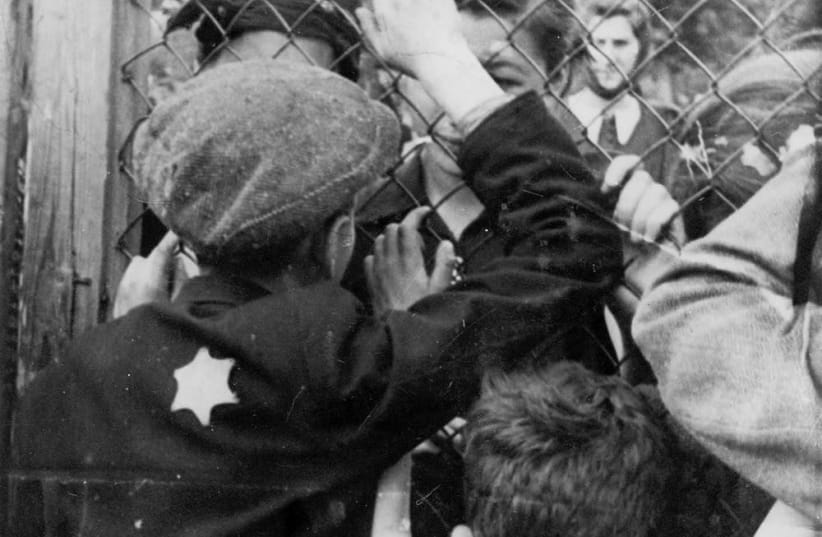Gail Benick’s second novel explores the deep, lasting and traumatic effect of the Holocaust on one family, some of whose members survived, reached America, and made their lives there.
Mama and Papa Berkowicz were living in Lodz, Poland, with their children when the Nazis swept in and created the Lodz Ghetto. They managed to survive, and after the war, they and their two daughters, Hetty and Tilya, made their way to the United States where the Berks, as they became with a scrawl of the immigration officer’s pen, had two more daughters, Terry Sue and Linda Sue. It is a family deeply affected by what they endured, but exactly what happened to them and how they survived is never discussed. A deafening silence lies at the heart of the family. This commonly observed characteristic of Holocaust survivors is the fiber from which Benick weaves her novel.
We pick up the family’s story in 1972, a time of social turmoil in the States. Both Terry Sue and Mama have passed away. Hetty is married and has a son and daughter. Tilya is single, an activist for the feminist cause, among other issues. Preferring to be known as Toni outside the family, she is determined to have a child through an anonymous father. Linda Sue, a school teacher, is plagued by the family’s reticence to discuss the past, and against her sisters’ opposition decides to take a two-week trip to Poland to try to unearth some of their story. Hetty’s son Josh insists on going with his aunt.
What they discover fills in some of the gaps in Linda’s knowledge of the family’s past – she finds that Josh is named for a hitherto unknown brother of hers who had been transported from the ghetto to a death camp. The fact of his existence and his fate had never been even obliquely referred to within the family. During the trip Linda falls in love with a Pole. Although not Jewish, his family was also impacted by the Holocaust, but she knows he would never be accepted by her father.
The three sisters, all highly intelligent, are fiercely loyal to their traumatized and elderly Papa, and indeed to each other though they wrangle constantly. The ever-present wound at the heart of their family refuses to heal, and the lives of each is affected by it.
The social unrest of the time manifests itself in their neighborhood, University City (known as U. City) in St Louis. It forms a relevant backdrop to their story. For example, the official decision to destroy the Pruitt-Igoe housing complex, erected in the 1950s, which quickly became a slum exclusively inhabited by poor, black residents. Hetty, a real estate agent, viewed on TV the demolition, which left large numbers of residents homeless. “The demolition heightened conflict between the sisters and foreshadowed the violence that will tear apart their family,” Author Benick later explained. She was referring to the wave of random school shootings in the 1980s that also impacts heavily on the family.
“When I began to write Memory’s Shadow,” Benick has confided, “I knew the story had to be set in U. City. As the old adage goes, ‘Write what you know.’ Although I have not lived in Missouri for decades, the U. City streetscapes remain vivid in my mind.”
As for Toni, fate brings two Japanese artists to U. City. She makes out with both of them, determined that one will be the father of her child. After they return to their homeland, she decides to visit them in Japan. While there, she goes on her own to Hiroshima, the site of the first atom bomb that was dropped on Japan in 1945. She finds the experience overwhelming, but is devastated on her return to learn that Papa had died and was buried while she was away.
She confides to her diary: “Papa, will you ever forgive me for not being there for you? I would have walked on water to get back to St Louis, if only I had known... My worst regret – and I have a lot of them – is that I didn’t get to tell you that I am going to have a baby.”
And there, at that point in her novel, Benick prints out part of Josh’s eulogy to his grandfather Szymon – an acknowledgment of the past that had so long been evaded by the family.
“At the Jewish cemetery in Lodz, standing among the tombstones... I felt the hold of my ancestors. In the Ghetto Field, where thousands of Jewish victims were buried without headstones, I felt their hands reach out to grip mine. And at the trench along the outer wall of the cemetery, inside the gate, I heard the shovels of a small band of remaining Jews from the Lodz Ghetto ordered by the Nazis to dig their own grave. If the Russian army had not advanced, they would have perished, every last man. I imagine that one of those starving, nearly dead trench diggers, was my Zaidi, Szymon Bercowicz.”
In Memory’s Shadow, Benick brings to life in thoroughly convincing detail of a family through whom she illustrates the effects of the Holocaust on many who survived. She demonstrates that traumas so deep, even if covered up or buried, exercise a profound effect on those affected. This is a novel to read, enjoy, and ponder over. ■
Memory’s ShadowGail BenickInanna Publications and Education Inc, 2021$22.26; 160 pages

